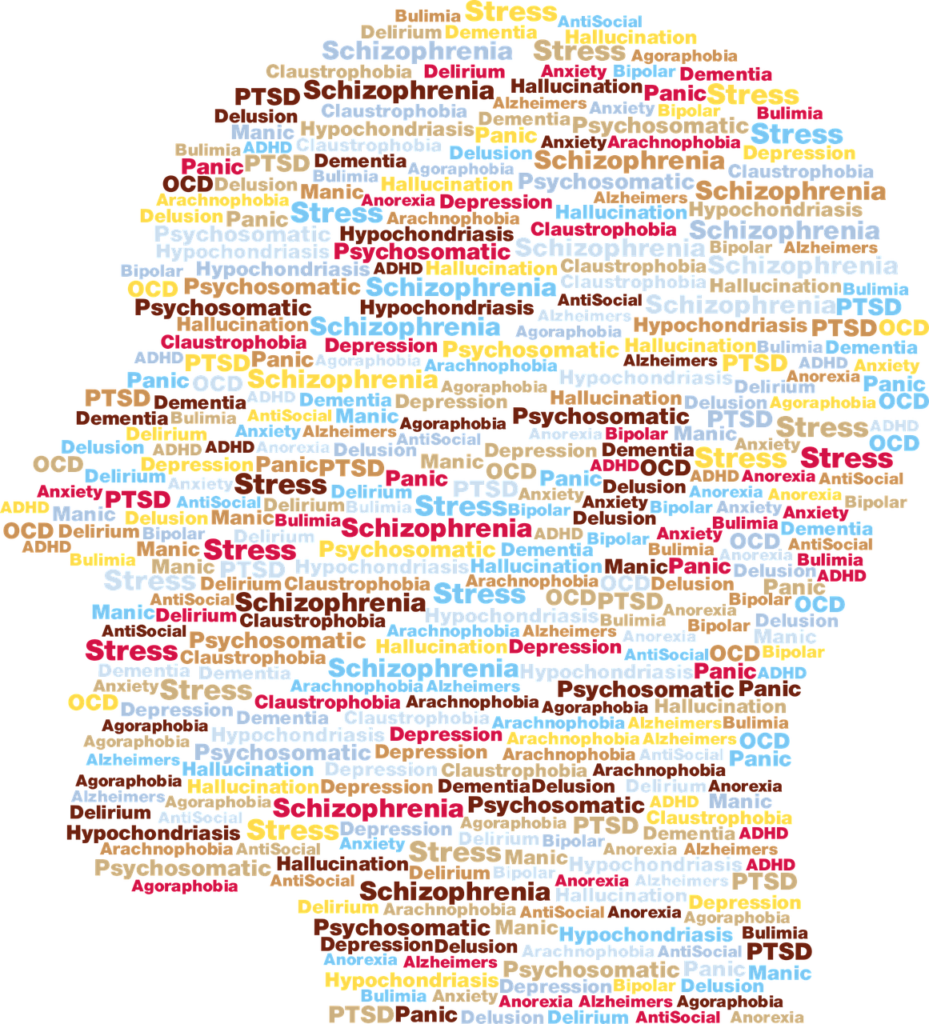Many of my friends and family members ask me – When do we know it is time to seek professional help for a psychological problem?
On the face of it, it looks like a remarkably simple question but if we understand the length and the breadth of it, we realise it does not have such a straightforward answer. Mental health has so much variability and volatility that it is tough to figure out when an emotional problem has gone to the level of a psychiatric disorder. All of us have disconcerting thoughts and negative emotions every once in a while, as we strive through the journey of our lives. So how do we know whether it is just a thought or an emotion or a behaviour that will go away without damaging us or it is a disorder which can have long lasting repercussions on our mental health.
Imagine these situations –
A new intern gets suspended in the second week of her internship and she is angry!
A senior consultant loses his job and he is frustrated!
A young lady loses her spouse and she is heartbroken!
A middle-aged housewife has an unfaithful spouse, and she doesn’t know the way ahead!
A young man meets a life-threatening accident and escapes closely, and he is fearful!
A newly wed couple is finding it difficult to juggle time between home and workplace, and both are lost!
These emotions are natural, yet how do we know that an emotional reaction is out of proportion or is likely to be falling in morbid category. How to ascertain whether these people need professional help or not?
In all likelihood, it is advised that one should seek professional help and let the expert decide whether it is to the level of a disorder or not. That is the most simple and straight forward answer!
Simplifying it further, we have these four Ds which dictate whether it is a self-resolving problem or a treatment deserving illness. These four Ds are a valuable construct for anyone, especially a psychiatrist to identify the points on a continuum at which human cognition, emotion and behavior change from normal into abnormal and thus can be classified as a psychiatric disorder.
- Dysfunction – Any thought, emotion or behaviour that leads to disruption of the socio-occupational functioning of the individual deserves treatment. For example, cleanliness is a virtue; a good habit on most occasions. But if, a person indulges in repetitive cleaning and because of that, misses deadlines at work/college; is not able to keep social obligations due to time consumed in the cleaning rituals; has spats and fights with family members due to cleaning habits, then he certainly needs professional help.
- Distress – Distress could set in due to preoccupation with a thought, emotion or behaviour leading to disturbed basic human functions such as sleep, meals, bathing etc. For example, a morbid recurrent intrusive thought that a person has a fatal physical illness when all the evidence points towards contrary; then the person needs psychiatric help.
- Danger – Any thought, emotion or behaviour dangerous for self or others certainly warrants treatment. A stressed-out individual contemplating suicide or homicide as a way to escape from the current situation needs a detailed psychiatric evaluation. An alcohol user, despite the harmful consequences (in any one of the legal, social, interpersonal or professional spheres), if is still persisting with alcohol and is not able to stop taking it – needs treatment.
- Deviance – Any thought, emotion or behaviour which is deviant from the normalcy deserves treatment. If a person is hearing voices not apparent to others or he feels that he is in communication with the outer world, it falls in the morbid category and needs treatment.
We must note that in some cases these 4 Ds are obvious and hence can be brought to attention of family members and psychiatrists without much effort. However, on many occasions, these parameters may not be so apparent to the loved ones, not even to the patient himself due to poor insight into the illness. So the best option is to always ask the expert for help and let the expert decide whether it is normal or abnormal. Sometimes, the first expression of a mental illness is suicide, which then becomes too late. So please seek professional advice at the first suspicion of an emotional problem.
Wishing you the best of mental health today and always!
Dr Apala
PS- This post is for information purpose only. Consult a doctor for medical advice, diagnosis, and treatment.


Very useful n straightforward write up
Thank you
Glad that you found it useful.
Wonderful… very useful…appreciate you taking out time to inform us in these busy times
Many thanks
Crisp and to the point – Thanks for sharing
Thank you 🙂
Very informative to distinguish between benign and sickness. It is educative not for individual or family members but also for general doctors.
Glad that you found it informative!
Informational! Found the article to be useful to have an analysis on our closed ones if any of them show any sign of mental illness.
This will surely provide to reach help timely to the needed one.
Many thanks Chetan 🙂
Very informative . Need of the present times.
Thank you!
Very informative, well summarised in one line that the decision of whether treatment required or not should be taken by expert, not ourselves or family…
Absolutely 🙂
Very effectively put. The choice is always as straightforward as this….whether to suffer or seek help in time.
Like I always say, none of us is going to get a bravery award for suffering! Seek help at the earliest 🙂